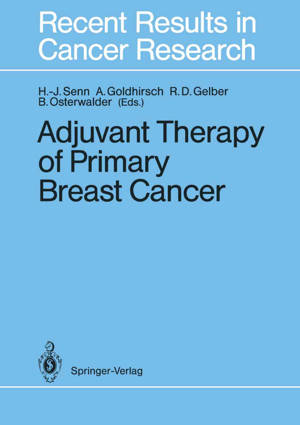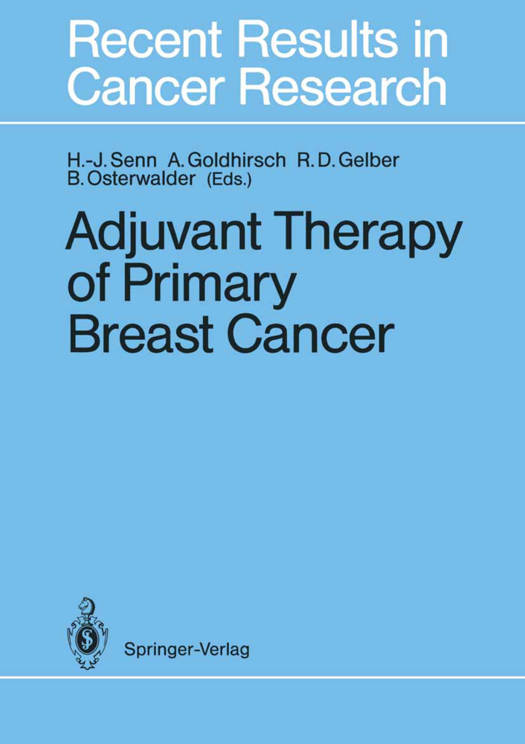
Je cadeautjes zeker op tijd in huis hebben voor de feestdagen? Kom langs in onze winkels en vind het perfecte geschenk!
- Afhalen na 1 uur in een winkel met voorraad
- Gratis thuislevering in België vanaf € 30
- Ruim aanbod met 7 miljoen producten
Je cadeautjes zeker op tijd in huis hebben voor de feestdagen? Kom langs in onze winkels en vind het perfecte geschenk!
- Afhalen na 1 uur in een winkel met voorraad
- Gratis thuislevering in België vanaf € 30
- Ruim aanbod met 7 miljoen producten
Zoeken
Adjuvant Therapy of Primary Breast Cancer
€ 168,45
+ 336 punten
Omschrijving
The ultimate "consumer" of the data presented at conferences on the primary treatment of operable breast cancer is the patient, and when, as in this disease, the benefits of therapy are relatively mod- est, the availability and interpretation of the data from trials be- comes an issue of primary importance. The effects of present treat- ment are in fact such that more patients relapse despite therapy than are estimated to benefit from it. It is, therefore, extremely dif- ficult for the physician to recommend unequivocally one particular adjuvant treatment modality for the vast population of women with breast cancer. The interpretation of results from clinical research-oriented pro- grams is constantly applied, however, in the treatment of breast cancer patients outside of clinical trials. From presented or publish- ed data, many physicians extrapolate indications for the use of a given treatment regimen for their patients, perceiving it as the "best available therapy. " It is essential that the "best available therapy" be selected individually for each patient. However, considering the modest effect of treatment upon outcome, it is imperative that those who provide the data - those who are involved in both pa- tient care and clinical research - make it known that the best cur- rent treatment for the population of breast cancer patients is avail- able within the framework of clinical trials. In this way not only present-day patients but also future ones will derive the greatest benefit.
Specificaties
Betrokkenen
- Uitgeverij:
Inhoud
- Aantal bladzijden:
- 296
- Taal:
- Engels
- Reeks:
- Reeksnummer:
- nr. 115
Eigenschappen
- Productcode (EAN):
- 9783642833397
- Verschijningsdatum:
- 14/12/2011
- Uitvoering:
- Paperback
- Formaat:
- Trade paperback (VS)
- Afmetingen:
- 170 mm x 244 mm
- Gewicht:
- 503 g

Alleen bij Standaard Boekhandel
+ 336 punten op je klantenkaart van Standaard Boekhandel
Beoordelingen
We publiceren alleen reviews die voldoen aan de voorwaarden voor reviews. Bekijk onze voorwaarden voor reviews.








